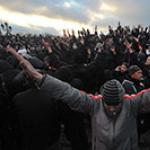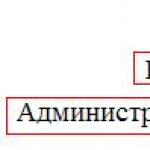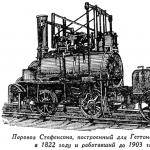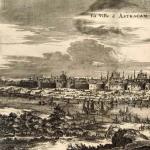Krasnodar State Institute of Culture. Krasnodar State University of Culture and Arts Kuban Theater Institute
Culture and Arts was one of the leading creative universities in our country. Now this university exists, but under a slightly different name. However, it still occupies an important place in the educational system of Russia, gaining good positions in the rankings of higher educational institutions.
Change of names
The creative educational organization of Krasnodar, known as the Krasnodar State University of Culture and Arts, was formed in November 1966. Its name was a little different. It was the Krasnodar Institute of Culture. In the first year, about 150 people were accepted for training. After 2 years, a dormitory was opened and the enrollment of foreigners to the university began.
In the 90s, the educational organization changed its name and status several times. From an institute, the university was transformed into an academy, and a little later it became a university. In 2015, the historical name was returned to the educational institution. Now the university is again being talked about as the Krasnodar State Institute of Culture.
Structural units
The state university has 5 main faculties:
- Information and library. This faculty traces its history almost from the very moment the university was founded. The structural unit was opened in 1967. At first it was the library department. In 1993 it received its modern name.
- Broadcasting and theatrical arts. This structural unit is quite young, as it appeared only a few years ago. It was formed as a result of the merger of 2 faculties.
- Folk culture. This structural unit at the Krasnodar University of Culture and Arts appeared about 10 years ago. It was also formed as a result of the merger of the already existing faculties of traditional culture and choreography.
- Fine arts, design and humanities education. This is a young faculty, opened just a couple of years ago.
- Tourism and socio-cultural activities. About 4 years ago, the structural unit had a different name. It was the Faculty of Advertising, Social Services and Cultural Studies. The name change is due to the abandonment of some educational programs.

Conservatory of the educational institution
A special structural unit is the KGUKI Conservatory. It traces its history back to 1992, when the Faculty of Arts was opened at the university. A little later, the structural unit received a higher status. It became known as the Institute of Arts. Today it is no longer a faculty or an institute, but a conservatory. She conducts educational activities.
The conservatory offers various specialties and master's programs (for example, “vocal art”, “conducting”, “music pedagogy”). Students here are offered not only high-quality education, but also an interesting student life. The conservatory regularly hosts competitions, festivals, and student groups (orchestras, academic choirs, etc.).

Bachelor's and Specialist's degrees
Applicants wishing to obtain higher education are offered a wide range of undergraduate courses and specialties at the state university. Training is improved periodically. Several years ago, a point-rating system for assessing learning outcomes was introduced. Today it is used in 7 educational programs:
- “protection of natural and cultural heritage sites and museology”;
- “archival and document science”;
- “information and library activities”;
- "tourism";
- "cultural studies";
- “folk artistic culture”;
- "Musical applied arts and musicology."
Of all the existing areas, the most popular are “directing television and cinema,” “graphics,” “art history and theory,” and “acting.” It was on these programs that the highest competition on the budget was recorded in 2017.

Termination of some undergraduate programs
In 2017, Krasnodar State University of Arts and Culture refused to enroll in 4 non-core bachelor’s degrees - “psychological and pedagogical education”, “service”, “advertising and public relations”, “applied computer science”.
The implementation of several specialized bachelor's and specialty programs was also discontinued. From 2017 it is no longer planned to accept:
- to “applied ethics”;
- “folk crafts and decorative and applied arts” in the profile “art embroidery”;
- “arts and humanities” in the profiles “art business”, “advertising and visual communications”;
- "graphics" with a specialization in "graphic artist (book art)".

Secondary vocational education (SVE)
Applicants with a basic general education can enroll in secondary vocational education programs available at the Krasnodar State University of Culture and Arts. There are few directions. Here is their list:
- “archiving and documentation support for management”;
- “folk art (by type)”;
- “design (by industry)”;
- “choral and solo folk singing.”
In 2017, the list of training areas increased. Admission to the music cadet corps for a new specialty was announced - “instrumental performance (by type of instrument): orchestral percussion and wind instruments.” Based on the results of a competitive selection, 20 cadets were enrolled in it.

Annual career guidance events
In order to produce qualified specialists, Krasnodar State University of Culture and Culture is actively engaged in career guidance work to attract talented people to study. Over the course of a year, the university (institute) holds more than 10 open days, cultural and educational events in different cities and regions of the Krasnodar Territory.
Career guidance work includes master classes, public lectures, and creative meetings. Attention is also paid to people with disabilities, because they can also enter university. They are informed about admission both at the educational institution itself and virtually. Additional career guidance events for this category of applicants are annual creative competitions of the Krasnodar branch of the All-Russian Society of the Blind.
Work is also being carried out to attract foreigners to the faculties and specialties of KSUKI. A specialized preparatory department has been created for them, information and advertising materials have been developed, and career guidance meetings are held.

In conclusion, it is worth noting that the doors of the university (institute) are open to every applicant. You can understand whether any faculties and specialties are suitable for KSUKI by attending career guidance events. For children who have talents and are aware of them, the university has developed additional pre-professional programs in the field of arts. They are recruited annually. There are many people who want to study in such programs, so the university allocates a limited number of places, both paid and free.
| Krasnodar State Institute of Culture (KGIK) |
|
|---|---|
| International name | Krasnodar State University Of Culture |
| Former names | KGIK, KGIKI, KGAKI, KGUKI |
| Motto | Looking to the future |
| Year of foundation | |
| Type | state |
| Rector | Sergey Semenovich Zengin |
| Students | more than 4500 |
| Teachers | more than 300 |
| Location | Russia, Krasnodar |
| Campus | urban |
| Legal address | st. 40th anniversary of Victory, 33 |
| Website | kgik1966.ru |
Story
The Krasnodar State Institute of Culture was created by decision of the USSR government of November 1966 (Resolution of the Council of Ministers of the USSR of November 5, 1966 No. 863). The newly created institute had library and cultural-educational faculties, 200 students studied (according to other sources 150), there were 45 teachers. In 1968, its own dormitory with 502 places appeared and the first intake of foreign students took place. In 1973, the Faculty of Music and Education was opened.
In 1991 the institute was renamed Krasnodar State Institute of Arts and Culture, in 1993 - in Krasnodar State Academy of Culture, in 1997 - in Krasnodar State Academy of Culture and Arts, November 23, 1998 - in Krasnodar State University of Culture and Arts. On August 4, 2015, the university was renamed the Krasnodar State Institute of Culture, returning its historical name.
About five thousand students study at the same time in 50 specialties in all forms of education (full-time, part-time, second higher education) at the institute. The educational process includes 88 specializations of higher professional education, 11 postgraduate studies and 3 doctoral studies. As of 2013, 89 doctors of science, professors, 165 candidates of science, associate professors, 8 people's and 15 honored artists of the Russian Federation, 6 honored workers of art of the Russian Federation, 1 honored worker of science of the Russian Federation, 13 honored workers of culture of the Russian Federation, 1 honored worker of higher education were involved in the educational process schools of the Russian Federation, 1 People's Artist of the Russian Federation, 3 Honored Artists of the Russian Federation, 1 Honored Architect of the Russian Federation, 1 Honored Lawyer of the Russian Federation, 1 Honored Trainer of the Russian Federation, 1 Honorary Worker of Secondary Professional Education, 41 people have honorary titles of Kuban, 52 members of various creative unions, more than 40 laureates of competitions and festivals. .
In 2008-2012, the University Conservatory was headed by Honored Artist of Russia, head of the regional branch of the Union of Composers of Russia V. A. Chernyavsky.
The Institute closely cooperates in training specialists with the Krasnodar State Academic Drama Theater, the Krasnodar State Philharmonic Society and the Premiere Creative Association. The youth opera theater of the university produces operas. Thanks to the efforts of teachers and students, productions of the operas “Eugene Onegin” by P. I. Tchaikovsky, “The Dawns Here Are Quiet” by K. V. Molchanov, “Aleko” by S. V. Rachmaninov, and the children's opera “Terem-Teremok” by V. A. Chernyavsky were carried out .
In 2012, the Krasnodar State Institute of Culture was recognized as an ineffective university. Quick and comprehensive solutions were needed to improve the team's performance. A university development program for 2013-2018 was adopted, which included measures to update the content of education, improve scientific and artistic work, develop international activities, and strengthen the educational and material base.
Over the years the situation has completely changed. Now the Krasnodar Institute of Culture is recognized as one of the best educational institutions in its industry.
During the 2015-2016 academic year, 38 master classes and creative meetings were organized and held with invited specialists (managers, professors, cultural and artistic figures, folk artists, directors, actors, screenwriters, musicians) both from Russia and from foreign countries (Italy, USA, Serbia, Finland, China).
In 2016, the State Prize in the field of literature and art was awarded to the head of the Kuban Cossack Choir, Dean of the Faculty of Folk Culture of the Krasnodar State Institute of Culture, Professor Viktor Zakharchenko.
The highest regional award, the medal “Hero of Labor of Kuban”, was awarded to the dean of the Faculty of Broadcasting, Theater and Fine Arts of the Krasnodar State Institute of Culture, Professor Vladimir Runov.
The laureates of the Krasnodar Territory Administration Award were the dean of the faculty of social and humanitarian education Natalya Aleksandrovna Gangur, the head of the department of folk choral creativity Svetlana Aleksandrovna Zhiganova, the professor of the department of theory and history of culture Vardan Grigoryevich Torosyan and the associate professor of the department of folk choral creativity Tatyana Aleksandrovna Krinitskaya. Krinitskaya T. A. was also awarded the title of Honored Worker of Culture of Kuban.
Now the Krasnodar Institute of Culture is recognized as one of the best educational institutions in its industry. Changes in the work of the university occurred in several directions at once.
The education system is developing. In 2015, the institute switched to a multi-level education system. Now KGIK is a center for continuous education: children study in children's studios and an art school, then continue their studies in college and university. And in 2017, within the framework of this system, the first enrollment of students into the Music Cadet Corps took place. Today, 40 young musicians are studying here, who have already taken prizes at national and international competitions. In the summer of 2018, students of the Krasnodar Musical Cadet Corps performed in Rostov-on-Don and Moscow at the FIFA World Cup.
The content of educational programs has been updated. The university abandoned non-core areas of study and focused on creative specialties. Currently, the institute provides training in three pre-vocational education programs, six specialties of secondary vocational education and 52 areas of higher education. In total, about four thousand students and students study at the university. 250 teachers work with them.
Over the past five years, the material base of the university has been strengthened: major repairs have been carried out in all academic buildings and dormitories. For about a year, the restoration of premises in the ancient mansion of the 19th century, a unique historical and cultural monument “The House of Merchant Nikitin”, took place. The exterior and interior decoration has been completely restored, and the building has undergone a major overhaul. The institute now has two of its own buses, new musical instruments have been purchased, a photo laboratory has been opened, and a conference room has been equipped with the latest technologies. The territory of the university has been landscaped and sports grounds with exercise equipment have been installed. A long-awaited gift for everyone was the construction of a new stadium on the territory of the institute. It is equipped with everything necessary for training and educational activities. Sports games, competitions, quests and flash mobs take place here. And in the fall of 2018, the university opened a new modern library, the work of which is based on RFID technologies. Not only students study here, but also specialists from all over Kuban come to learn how to use library innovations.
Student activity at the university is growing, educational and creative projects are being developed. Every year the institute hosts about 100 scientific conferences, seminars and open lectures. And also - over 150 artistic and creative festivals, competitions and concerts. Students and teachers become participants in outstanding events in our history. They took part in the opening and closing ceremonies of the Sochi Winter Olympic and Paralympic Games, in the XIX World Festival of Youth and Students in Sochi, as well as at concerts in the fan zones of the FIFA World Cup.
In June 2018, the Institute hosted the VII All-Russian Festival of Educational Institutions of Art and Culture. About 50 delegations from all over the country took part in it. And in October 2018, as part of the “ART-PROmovement”, more than 70 representatives of the institute went on a tour of the North Caucasus. They held various master classes, methodological meetings and concerts.
Work of a patriotic nature occupies a special place. Together with the Russian Military Historical Society, students conduct excursions to places of military glory, and also implement the “Face of Victory” project. In April 2019, the fifth volume of the book was published with portraits of veterans painted by university artists. Every year the university hosts the “All-Kuban Suvorov Readings”.
The Krasnodar Institute of Culture has significantly expanded international relations. Now more than 250 students from 35 countries study here. The university works fruitfully with universities, conservatories, colleges and libraries in Great Britain, China, Venezuela, Italy, Poland, Slovakia, and Belarus. In 2015, Rector Sergei Zengin joined the Board of Trustees of the Association of Foreign Students of Russia. In 2016, a delegation of university students visited the IV Caspian Forum of Foreign Students and Graduates. Last fall, the institute became the organizer of the China Today art week. It was held for the first time in Russia. The central event of the Week was the performance of the opera “Marriage with the Heavenly Fairy”.
Thanks to all these changes, the institute has achieved recognition of its effectiveness according to the monitoring of the Ministry of Science and Higher Education of the Russian Federation. In February 2018, the Krasnodar State Institute of Culture passed state accreditation, and a year before that - international professional and public accreditation. At the end of 2018, he entered the federal project “Creative People”.
Rectors
Faculties
- conservatory
- information and library
- socio-cultural activities and tourism
- broadcasting and performing arts
- folk culture
- design, fine arts and humanities education
- continuous and additional education
Krasnodar State University of Culture and Arts higher education institution in the city.
Story
Krasnodar State University of Culture and Arts was founded in 1967 by a decree of the USSR Council of Ministers. Nowadays it is a creative university in the South of Russia, one of the largest universities in Russia in the field of culture, art and education.
The Krasnodar State Institute of Culture was created by decision of the USSR government of November 1966 (Resolution of the Council of Ministers of the USSR of November 5, 1966 No. 863). The newly created institute had library and cultural-educational faculties, 200 students studied there (according to other sources 150), and there were 45 teachers. In 1968, its own dormitory with 502 places appeared. Also in 1968, foreign students were admitted for the first time. In 1973, the Faculty of Music and Education was added.
In 1991, the institute was renamed the Krasnodar State Institute of Arts and Culture.
In 1993, the institute was renamed the Krasnodar State Academy of Culture, and later in 1997 - the Krasnodar State Academy of Culture and Arts.
- First rector Pavel Vasilievich Nayanov (until 1983)
- Leonty Alekseevich Solodukhin (from 1983 to 1991)
- Irina Ivanovna Gorlova (from 1991 to 2008)
In 2008, Doctor of Pedagogical Sciences, professor, member of the Union of Composers of Russia Natalya Romanovna Turavets was elected rector of KSUKI. She worked in this position until November 2010.
At the University, about five thousand students study simultaneously in 50 specialties in all forms of education (full-time, part-time, second higher education). In the educational process, 88 specializations of higher professional education, 11 - postgraduate studies and 3 - doctoral studies are successfully implemented. Currently, 89 doctors of science, professors, 165 candidates of science, associate professors, 8 people's and 15 honored artists of the Russian Federation, 6 honored workers of art of the Russian Federation, 1 honored worker of science of the Russian Federation, 13 honored workers of culture of the Russian Federation, 1 honored worker of higher education of the Russian Federation, 1 People's Artist of the Russian Federation, 3 Honored Artists of the Russian Federation, 1 Honored Architect of the Russian Federation, 1 Honored Lawyer of the Russian Federation, 1 Honored Trainer of the Russian Federation, 1 Honorary Worker of the Secondary Professional Education, 41 people have honorary titles of Kuban, 52 members of various creative unions, more than 40 laureates of competitions and festivals. .
Faculties:
- information and library
- music and humanities education
- economics and Management
- television and radio broadcasting
- theatrical arts
- rights and legal protection of culture
- linguistics and intercultural communications
- advertising and socio-cultural activities
The University Conservatory is headed by Honored Artist of Russia, head of the regional branch of the Union of Composers of Russia V. A. Chernyavsky.
The university closely cooperates in training specialists with the Krasnodar State Academic Drama Theater, the Krasnodar State Philharmonic Society and the Premiere Creative Association. The youth opera theater of the university produces operas. Thanks to the efforts of teachers and students, productions of the operas “Eugene Onegin” by P. I. Tchaikovsky, “The Dawns Here Are Quiet” by K. V. Molchanov, “Aleko” by S. V. Rachmaninov, and the children's opera “Terem-Teremok” by V. A. Chernyavsky were carried out .
Notes
Links
 |
Wikimedia Foundation. 2010.
See what "Krasnodar State University of Culture and Arts" is in other dictionaries:
This term has other meanings, see Ministry of Culture. The request “Ministry of Culture of the USSR” is redirected here. A separate article is needed on this topic... Wikipedia
Krasnodar State University of Culture and Arts higher education institution in the city.
Story
Krasnodar State University of Culture and Arts was founded in 1967 by a decree of the USSR Council of Ministers. Nowadays it is a creative university in the South of Russia, one of the largest universities in Russia in the field of culture, art and education.
The Krasnodar State Institute of Culture was created by decision of the USSR government of November 1966 (Resolution of the Council of Ministers of the USSR of November 5, 1966 No. 863). The newly created institute had library and cultural-educational faculties, 200 students studied there (according to other sources 150), and there were 45 teachers. In 1968, its own dormitory with 502 places appeared. Also in 1968, foreign students were admitted for the first time. In 1973, the Faculty of Music and Education was added.
In 1991, the institute was renamed the Krasnodar State Institute of Arts and Culture.
In 1993, the institute was renamed the Krasnodar State Academy of Culture, and later in 1997 - the Krasnodar State Academy of Culture and Arts.
- First rector Pavel Vasilievich Nayanov (until 1983)
- Leonty Alekseevich Solodukhin (from 1983 to 1991)
- Irina Ivanovna Gorlova (from 1991 to 2008)
In 2008, Doctor of Pedagogical Sciences, professor, member of the Union of Composers of Russia Natalya Romanovna Turavets was elected rector of KSUKI. She worked in this position until November 2010.
At the University, about five thousand students study simultaneously in 50 specialties in all forms of education (full-time, part-time, second higher education). In the educational process, 88 specializations of higher professional education, 11 - postgraduate studies and 3 - doctoral studies are successfully implemented. Currently, 89 doctors of science, professors, 165 candidates of science, associate professors, 8 people's and 15 honored artists of the Russian Federation, 6 honored workers of art of the Russian Federation, 1 honored worker of science of the Russian Federation, 13 honored workers of culture of the Russian Federation, 1 honored worker of higher education of the Russian Federation, 1 People's Artist of the Russian Federation, 3 Honored Artists of the Russian Federation, 1 Honored Architect of the Russian Federation, 1 Honored Lawyer of the Russian Federation, 1 Honored Trainer of the Russian Federation, 1 Honorary Worker of the Secondary Professional Education, 41 people have honorary titles of Kuban, 52 members of various creative unions, more than 40 laureates of competitions and festivals. .
Faculties:
- information and library
- music and humanities education
- economics and Management
- television and radio broadcasting
- theatrical arts
- rights and legal protection of culture
- linguistics and intercultural communications
- advertising and socio-cultural activities
The University Conservatory is headed by Honored Artist of Russia, head of the regional branch of the Union of Composers of Russia V. A. Chernyavsky.
The university closely cooperates in training specialists with the Krasnodar State Academic Drama Theater, the Krasnodar State Philharmonic Society and the Premiere Creative Association. The youth opera theater of the university produces operas. Thanks to the efforts of teachers and students, productions of the operas “Eugene Onegin” by P. I. Tchaikovsky, “The Dawns Here Are Quiet” by K. V. Molchanov, “Aleko” by S. V. Rachmaninov, and the children's opera “Terem-Teremok” by V. A. Chernyavsky were carried out .
Notes
Links
 |
Wikimedia Foundation. 2010.
- Krasnodar spare parts
See what "Krasnodar State University of Culture and Arts" is in other dictionaries:
Ministry of Culture of the Russian Federation- This term has other meanings, see Ministry of Culture. The request “Ministry of Culture of the USSR” is redirected here. A separate article is needed on this topic... Wikipedia
Oleg
If you want to become a TV cameraman, cultural worker or lawyer, this is the place for you.
While studying at the faculty of television cameramanship, I gained a lot of valuable experience and a sea of practical experience.
Going through the admissions committee and submitting documents, I really wanted to become a member of this world of KGUKI and I succeeded, which I am glad about. While studying at the faculty of teleoperator skills, I was surprised by the large amount of equipment for practice.
The educational process is very well organized - students do not read lines from books, but share their own invaluable experience, which of course will help and be useful to you.
Such stories are told by very good specialists, giving large lectures on large-scale problems from the world of television.
Let’s not talk about its reputation, which is very high, and the university can compete with other “big” educational institutions
Personally, my group did an internship at the All-Russian State Television and Radio Broadcasting Company Kuban, which we are very happy about - this is also an invaluable experience, which is provided almost free of charge by KGUKI with great love.
0 Comment
The best years of my life!!! This is the only thing I can write about my studies at the Krasnodar State University of Culture and Arts. And I can rightfully call him “Kulek”! Without at all degrading its importance! And only complete squalor use this name wanting to offend its graduates.
Most of our lectures took place in the second building. Yes, of course, the building could use a major overhaul. But to say that this interferes greatly would not be true. And what teachers!!! Living legends! Even we, the correspondence students, received maximum attention! Well, there were a couple of outright unprofessionals extorting money, but they were “gone” fairly quickly. The main thing is that most specialties here provide a fairly broad education. That is, graduates can work both creatively and as managers in their field.
When I was thinking about where to go, I had a choice: either Kulek or Kubik (KubSU). And I don’t regret one bit that I made my choice in favor of the First! And the Best!
0 Comment
shpiz
Dear girls and guys, if you really love cinema, theater music, don’t ever go there, all your dreams will be crushed and your talents will be buried, the dean pesters girls for fear of expulsion, teachers are drunk in class and yell real obscenities for no apparent reason , the level of education is very weak, half of the teachers are oppressive with their orientation, so my advice to you is not to let this dirt into your life
0 Comment
creep
This, as you might guess, is this, so to speak, university.
From which, after several years, I successfully transferred to another university and was satisfied.
Huge advice to young ambitious people who dream of working in cinema - never enroll in the Faculty of Broadcasting. and if you are also the happy owner of some kind of talent, don’t bother here at all.
disgusting quality of education, disgusting teachers who shout and swear at students! the dean who hits on girls! half of the teaching staff does not come to class at all...
In general, several years of my life wasted in vain. When I was walking near the Institute of Culture on warm, fine days, from the open windows of this institution I heard singing and beautiful playing of musical instruments. It was the wonderful faculty of the conservatory that carried out its activities. There are currently 11 faculties here. And this is not the limit. The university is constantly improving and developing further.






